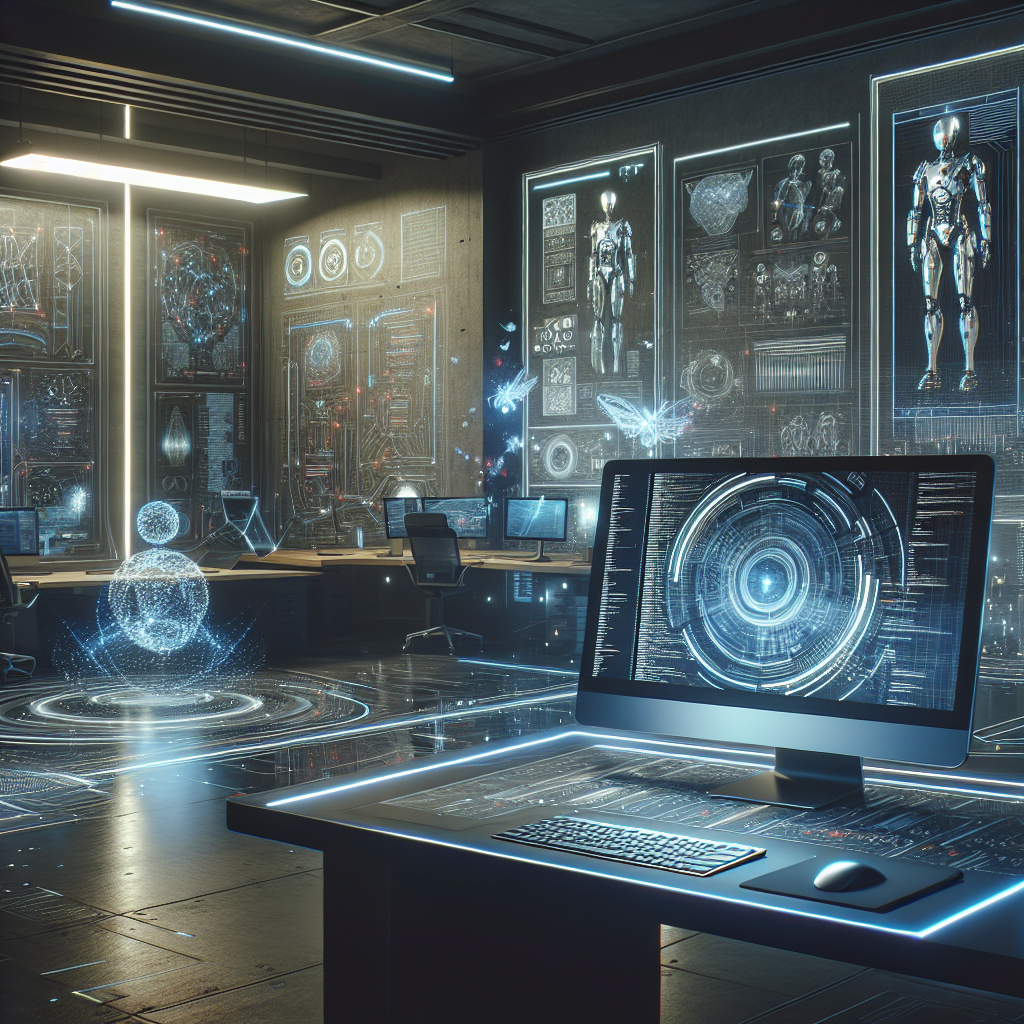The Future of Coding: A Symphony of Humans and AI
In an era where technology is not just an extension of ourselves but a fundamental aspect of our identity, the conversation about the future of coding is more pertinent than ever. The recent musings from the CEOs of Nvidia and Stability AI have sparked a fascinating debate, suggesting a future where AI doesn't just assist in coding but potentially takes the wheel. But is this vision of a programmer-free future feasible, or is it a digital utopia (or dystopia, depending on who you ask) that overlooks the essential human element in technology? Let's dive deeper, with a zest for uncovering the nuances of this complex symphony of ideas.
The Evolution of Programming: A History of Simplification
The journey of programming languages has been one of relentless simplification and democratization. From the arcane syntaxes of COBOL and Fortran to the more accessible constructs of Python and JavaScript, each generation of languages has strived to lower the barrier to entry. This progression isn't just a series of technical revisions; it's a philosophical statement about who gets to interact with technology and how.
In the light of this historical trajectory, the advent of AI in programming feels less like a radical departure and more like the next step on a long path. AI code assistants, with their promise to translate the desires of the human mind directly into functional code, represent an exciting leap towards a world where the power to create and innovate with technology is truly democratized.
Are Coders Becoming Obsolete?
The provocative statements from industry leaders suggest a future where traditional coding skills may no longer be necessary. The vision they paint is compelling: a world where domain experts, armed only with their knowledge and creativity, leverage AI to bring their visions to life without ever touching a line of code. This future hinges on the belief that AI will not only be able to understand complex human instructions but also execute on them with precision and finesse.
However, before we sound the death knell for programming as a skill, it's worth considering the limitations and challenges that currently accompany AI in coding. While tools like GitHub Copilot and ChatGPT have demonstrated remarkable proficiency, they are not without their flaws. Code generated by AI often requires human intervention to debug and fine-tune, hinting at a future that is less about the obsolescence of programmers and more about a shift in the nature of their work.
The Human Element: Why It Still Matters
Despite the advancements in AI, there remains an irreplaceable human element in the realm of coding. Creativity, intuition, and the understanding of complex human needs and emotions are areas where humans still far outstrip their silicon counterparts. The creation of engaging video games, intuitive user interfaces, and software that meets the nuanced needs of its users are feats that require a blend of technical skill and deep empathy—a combination that AI has yet to master.
Moreover, the process of learning to code teaches a way of structured thinking and problem-solving that is beneficial in a wide range of disciplines beyond software development. Even in a world where AI handles the bulk of coding tasks, the cognitive skills developed through programming remain valuable.
The Symphony of Humans and AI
The most likely future is not one dominated by either humans or AI alone but a blended, symbiotic existence where each complements the other. In this paradigm, AI takes on the role of a powerful tool that magnifies human creativity and efficiency. Coders transition into the role of architects and supervisors, guiding the AI in its tasks, identifying and correcting its mistakes, and ensuring that the final products align with human values and standards.
This future is not just about making coding more accessible; it's about elevating the role of humans in the creative process. It's a world where asking the right questions and providing the right prompts becomes as important as writing the code itself.
The Path Forward
As we stand on the brink of this exciting future, it's essential to foster a culture of continuous learning and adaptation. Encouraging current and future generations to learn coding is not about preparing them to compete with AI but rather equipping them with the skills to collaborate with AI effectively.
The future of coding is not a zero-sum game where advances in AI technology come at the expense of human coders. Instead, it's an opportunity to redefine what it means to create with technology, to transcend the limitations of human and machine, and to unlock new realms of possibility.
In conclusion, the conversation about AI and the future of coding is far from over. It's a vibrant, evolving dialogue that touches on the deepest questions about our relationship with technology: what it means to create, to innovate, and to dream. As we navigate this uncertain but exciting future, one thing is clear: the fusion of human ingenuity and AI's capabilities promises to rewrite the rules of what's possible, ushering in an era of technological advancement that is more inclusive, creative, and astonishing than anything we've seen before.
So, as we ponder the provocative statements from the leaders of Nvidia and Stability AI, let's embrace the zesty spirit of exploration and possibility. For in this symphony of humans and AI, the most beautiful music is yet to be played.
For further reading on AI's impact on various industries, visit:
- [https://www.technologyreview.com/](MIT Technology Review)
- https://futurism.com/
Related News
- The Future is Here: Embracing AI in Code Development
- The Dawn of AI Programming Assistants: A Futuristic Twist on Coding
- The Future of AI: Autonomous Coding Projects
- Navigating the AI Tsunami: A Deep Dive into the Currents Shaping Our Digital Future
- AI: The Thrilling Frontier of Human Ingenuity and Technology
